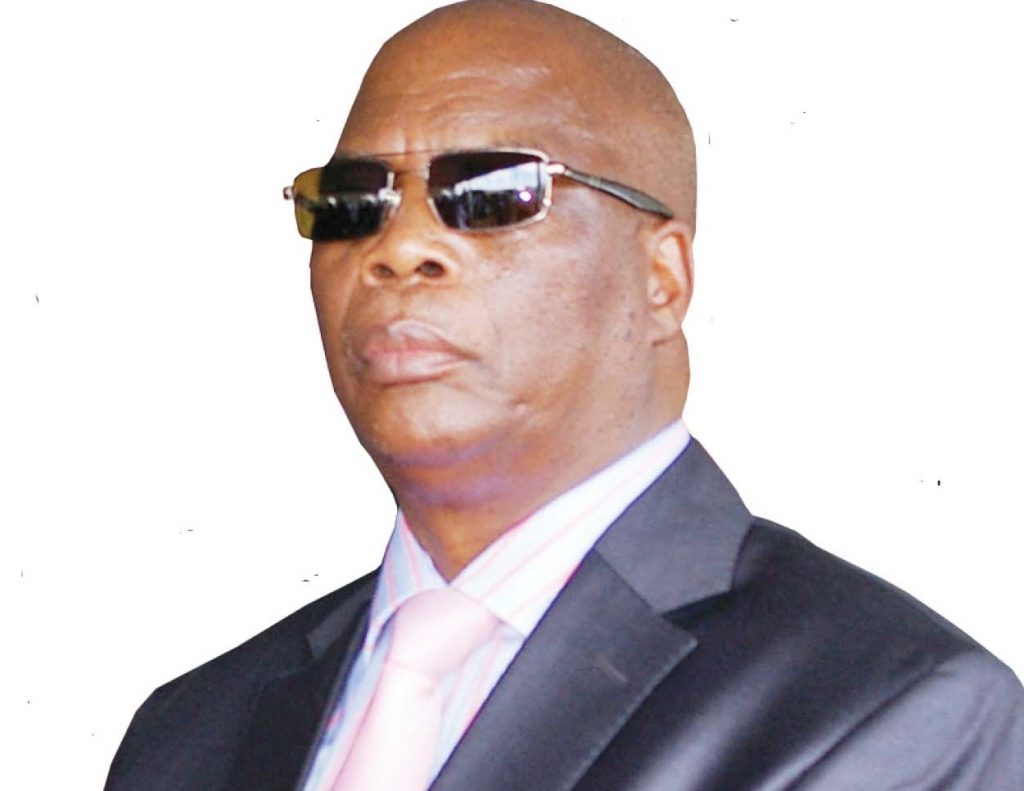- Swazi government suspends embattled Chief Justice and also withholds his arrest warrant pending the outcome of an inquiry by the Judicial Service Commission.
Lekhetho Ntsukunyane
The Swazi government yesterday suspended Mathealira Michael Ramodibedi as the country’s Chief Justice pending investigations into the corruption charges he is facing.
The investigations would be conducted by the Judicial Service Commission (JSC), according to a statement released yesterday by Prime Minister Sibusiso Dlamini.
The Swazi High Court ordered Justice Ramodibedi’s arrest on 17 April 2015 for alleged abuse of power, but he remains free after barricading himself in his mansion since that day.
However, in an effort to end the 19-day standoff, the Swazi authorities yesterday suspended Mr Ramodibedi, and also temporarily withheld his arrest warrant “until the JSC investigations are complete.”
The government also announced it would then be guided by the JSC on the next course of action against Mr Ramodibedi—a Mosotho who had been Swaziland’s Chief Justice since 2010 and was Lesotho’s Court of Appeal president from 2008 until his resignation last year to avoid impeachment for possible abuse of office.
Premier Dlamini noted in yesterday’s statement that the “suspended Chief Justice” was now expected to leave his residence “for the purpose of attending hearings conducted by the JSC led by newly appointed Acting Chief Justice, Bheki Maphalala”.
Mr Dlamini’s statement titled ‘Resolving our judicial challenges’, a copy of which the Lesotho Times managed to obtain, reads: “His Majesty’s Government and the nation at large, have encountered unprecedented and unacceptable legal challenges within the judiciary, which is one of the three arms of government.
“There has been extensive public commentary on legal issues. Some of the opinions expressed have been constructive, while others destructive and serving only to cloud the real issues. His Majesty’s Government and the Swazi nation are resolute in applying correctly and fairly, legal principles as found in our Constitution, Statutes, Swazi Customary Law and any relevant and available case law under the Commonwealth of Nations. The purpose of this is to vigorously, judicially and without delay, restore the rule of law and confidence in our judicial systems.
“Government wishes to point out that there are basically two legal routes to the resolution of these legal challenges. The first route is the application of criminal law, in this case the Prevention of Corruption Act 2006 where, under Section 33, it provides for the arrest of judicial officers such as judges and others, who are suspected to have been involved in corrupt activities. This can be referred to as the option of ‘arrest, and if need be, remove from office’.
“The second is the disciplinary option found under Section 158 of the Constitution which can be referred to as the ‘remove from office, and if need be, arrest’ option.”
Both options, the prime minister noted, were validated from the many cases decided under the Commonwealth of Nations.
He continued: “As to which one is more appropriate depends on the circumstances. If applied correctly, either option can achieve the desired goal. In the present case, government opted for the ‘arrest, and if need be, remove from office’ option which proved entirely satisfactory in respect of all the judicial officers in question, with the exception of the Chief Justice who frustrated the process by locking himself in his official residence and refused to obey official requests to comply with a court-sanctioned judicial process.
“With regard to the Chief Justice, the Government shall now switch to the other route which is the ‘removal from office and, if need be, arrest’ option. The end result will be the same for the judicial officers as the Constitution states that all are equal before the law.
“In his wisdom, after careful consideration, His Majesty has decided to approach the matter holistically and comprehensively in that two of the affected judges, namely Justices M M Ramodibedi and MS Simelane, are hereby placed under suspension with immediate effect. The charges against Justice (Jacobus) Annandale are to be withdrawn in view of his preparedness to act as a State witness.”
Judge Annandale had tried to revoke warrants of arrest against judges Simelane and Ramodibedi, which later landed him in trouble.
According to Prime Minister Dlamini, King Mswati III had acted “in accordance with Section 158 of the Constitution, and on the advice of an ad-hoc committee consisting of the Minister for Justice and Constitutional Affairs, Chairman of the Civil Service Commission, and President of the Law Society of Swaziland,” and referred the matter to the JSC for investigation.
Mr Dlamini continued: “It has also pleased His Majesty the King to appoint an Acting Chief Justice who will act until further notice. The Acting Chief Justice will have the mandate of resolving the country’s judicial challenges as quickly as possible in order to restore the confidence of the public, investors and the international community regarding the credibility of the judiciary. It follows that the Acting Chief Justice will also henceforth act as the chairman of the Judicial Service Commission, working closely with the Commission which will ensure that it operates according to its mandate under the Constitution.”
The premier added Mr Ramodibedi’s warrant of arrest “shall be held in abeyance until the investigation of the JSC is completed and recommendation regarding further course of action is confirmed.”
Meanwhile, yesterday’s developments came after Mr Ramodibedi reportedly tabled five demands for him to leave his residence.
According to The Times of Swaziland publication, Mr Ramodibedi demanded that he should be taken straight to the Ngwenya Border Gate, enroute to South Africa, where the Swazi police would not have the powers to arrest him. Another demand was that he should reach a “political settlement” with government in that he would step down as Chief Justice and leave the country.
Other demands were that he wanted to meet King Mswati III, his “diplomatic immunity” respected and to be recognised as Chief Justice.
However, despite being thrown a lifeline, Mr Ramodibedi remained in his mansion the whole day yesterday.



2 comments